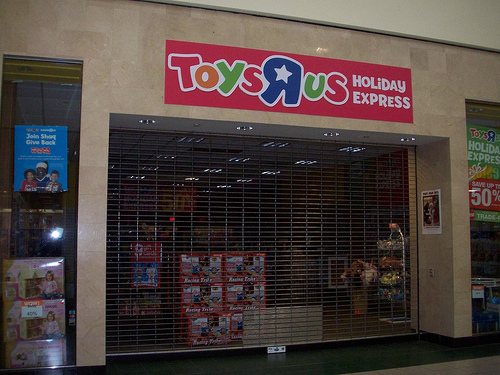Pop-up stores and kiosks are literally popping up in shopping centers throughout America. The companies involved in this kind of venture vary- ranging from new start-ups wanting to test their products in the market, to major brands looking to expand their presence in shopping malls during the holiday season using temporary locations.
Much of the pop-up craze among companies at both ends of the size spectrum has been fueled by the unusually high vacancy rates (about 15%) among retail centers. Desperate for income, the owners of these spaces have drastically cut their rental rates and increased their flexibility in regards to the other leasing terms and conditions.
In addition to the reduced costs involved, there are many other reasons to launch your own pop-up store:
-
Maximize seasonal sales. Pop-up stores are much more common around the holiday season, including small holidays, like Valentines’ Day or Halloween. Over last year’s Christmas season, Toys R Us opened 600 pop-up stores nation-wide. Once the season was over they packed up, saving themselves 9 months of rent.
-
Testing new markets or products. If you want to trial a new product or market then a pop-up concept offers a relatively risk free option. The big retailer Target recently used pop-up stores to test demand for their products before deciding to open permanent locations.
-
Creating brand awareness. The flexibility inherent to pop-up concepts, allows smaller companies to conduct targeted marketing. With a small monetary investment, a company can suddenly have a location in a busy consumer center. This may be particularly attractive to Internet-based businesses.
-
Clearing old stock. If you’ve got old stock taking up space in your warehouse, setting up a pop-up store for a week or two can be an ideal way of clearing space for new merchandise, making extra revenue, and increasing market awareness for new products all at the same time.
-
Test a location. Pop-up store leases tend to be short term by nature so if things don’t go as expected you won’t be tied to a long-term lease, costing your business unnecessary capital. If things go well, you can always extend the lease or find a bigger space nearby.

